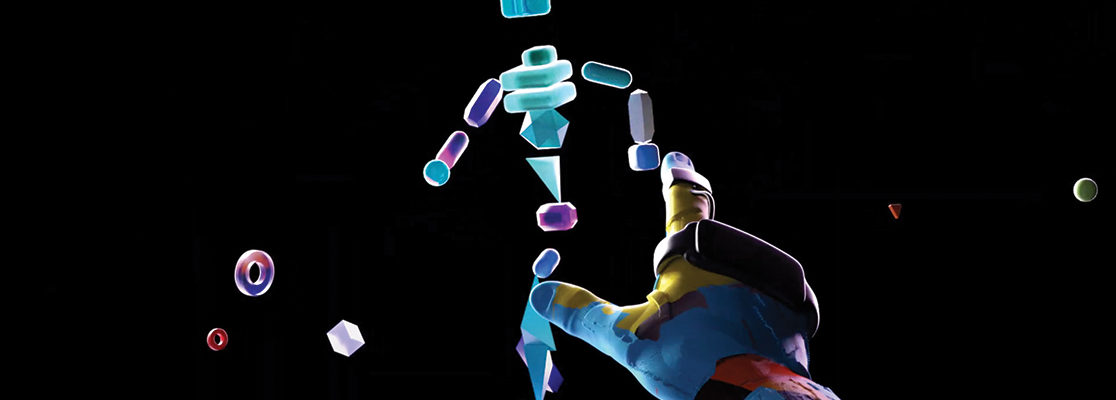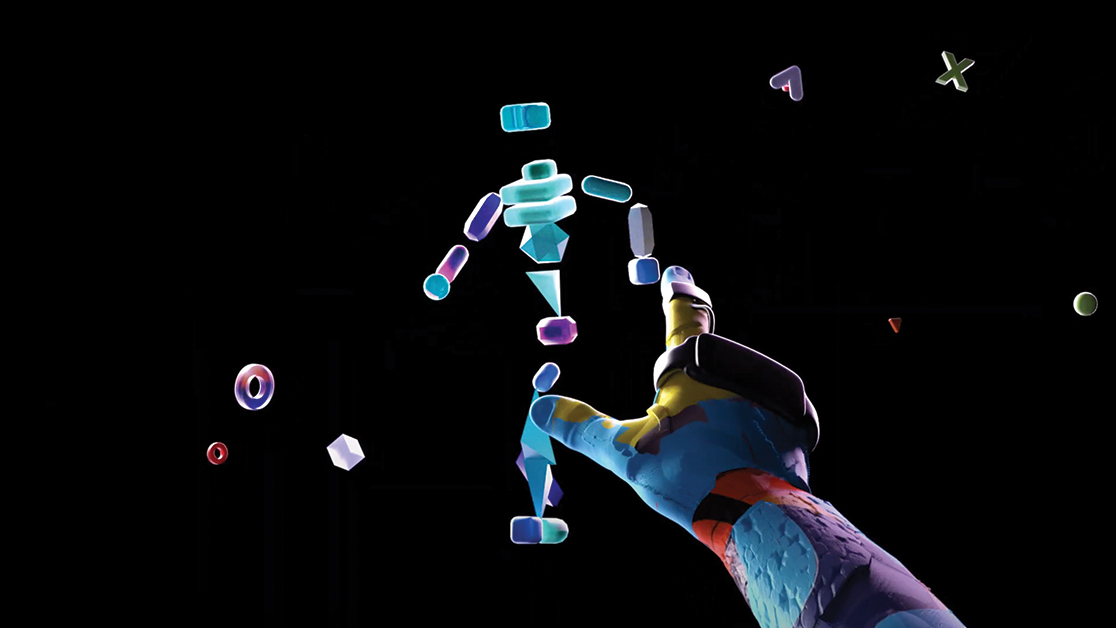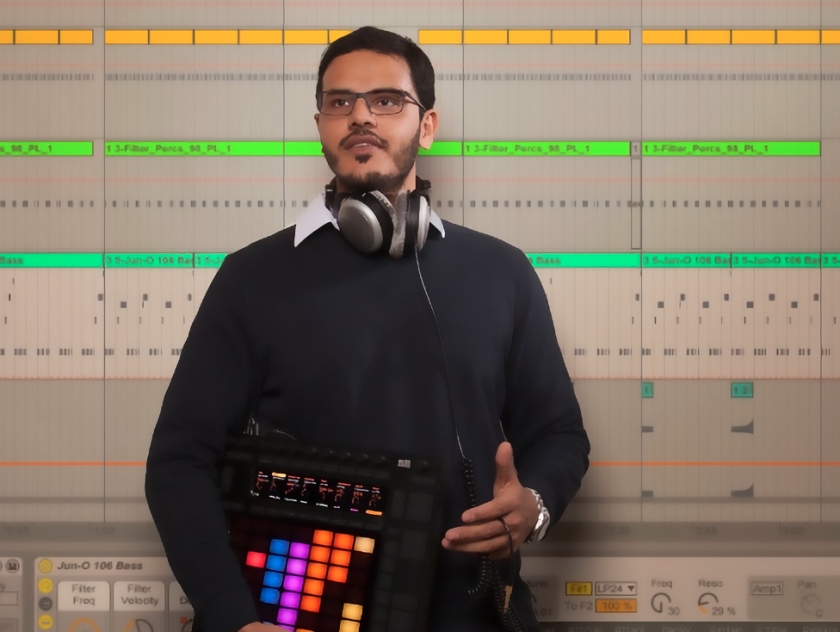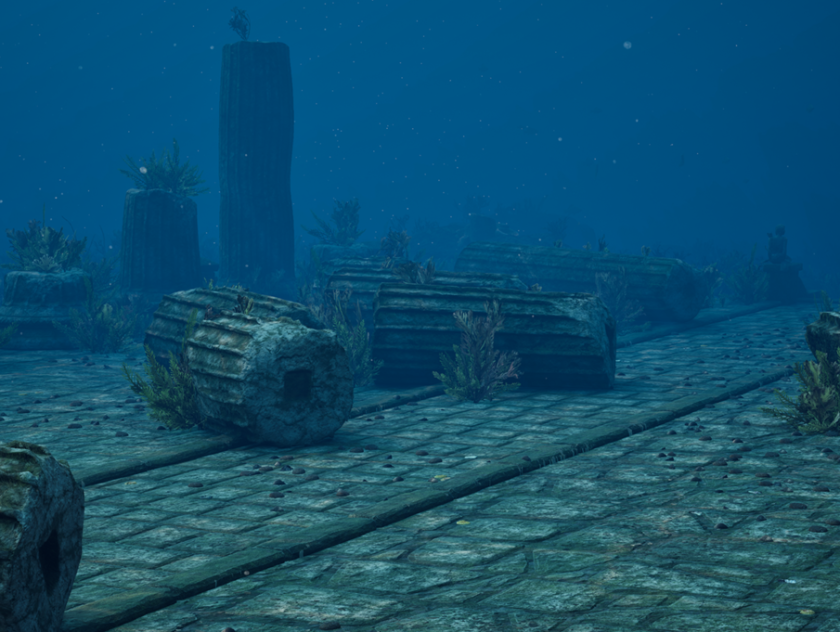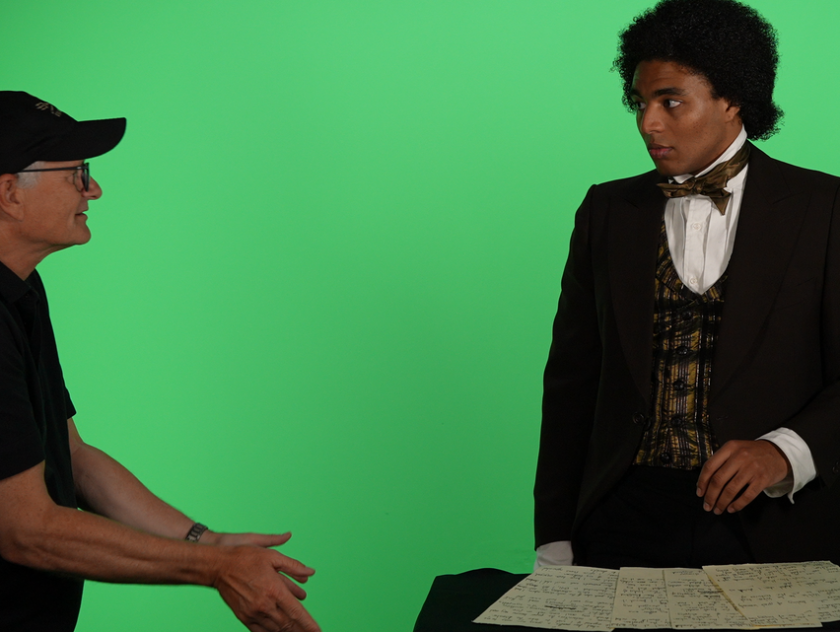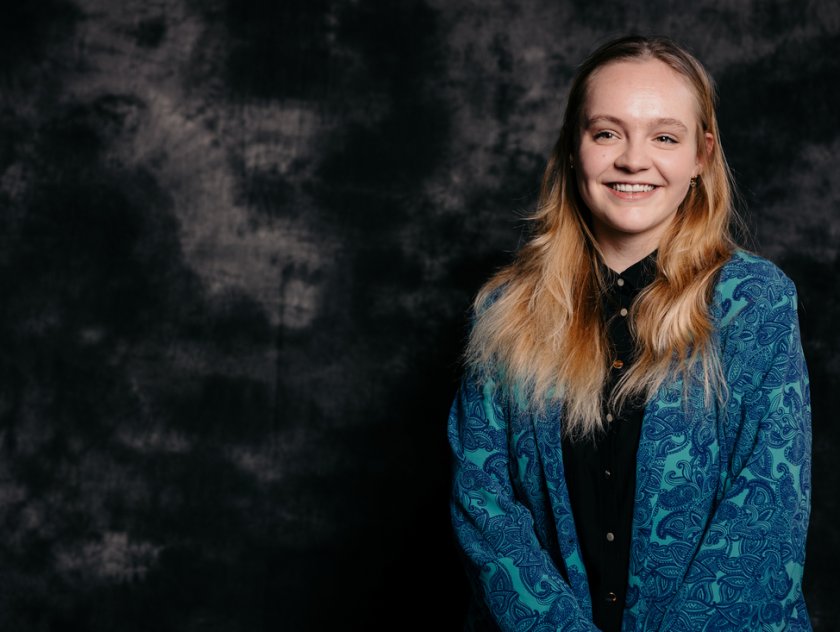MA/MSC PROFESSIONAL PRACTICE IN CREATIVE MEDIA INDUSTRIES degree
Advance your creative career with SAE’s 1-year fully remote creative industries masters degree. Tailor your learning and professional development to your interests as you conceive, design and execute original creative media projects of your choice.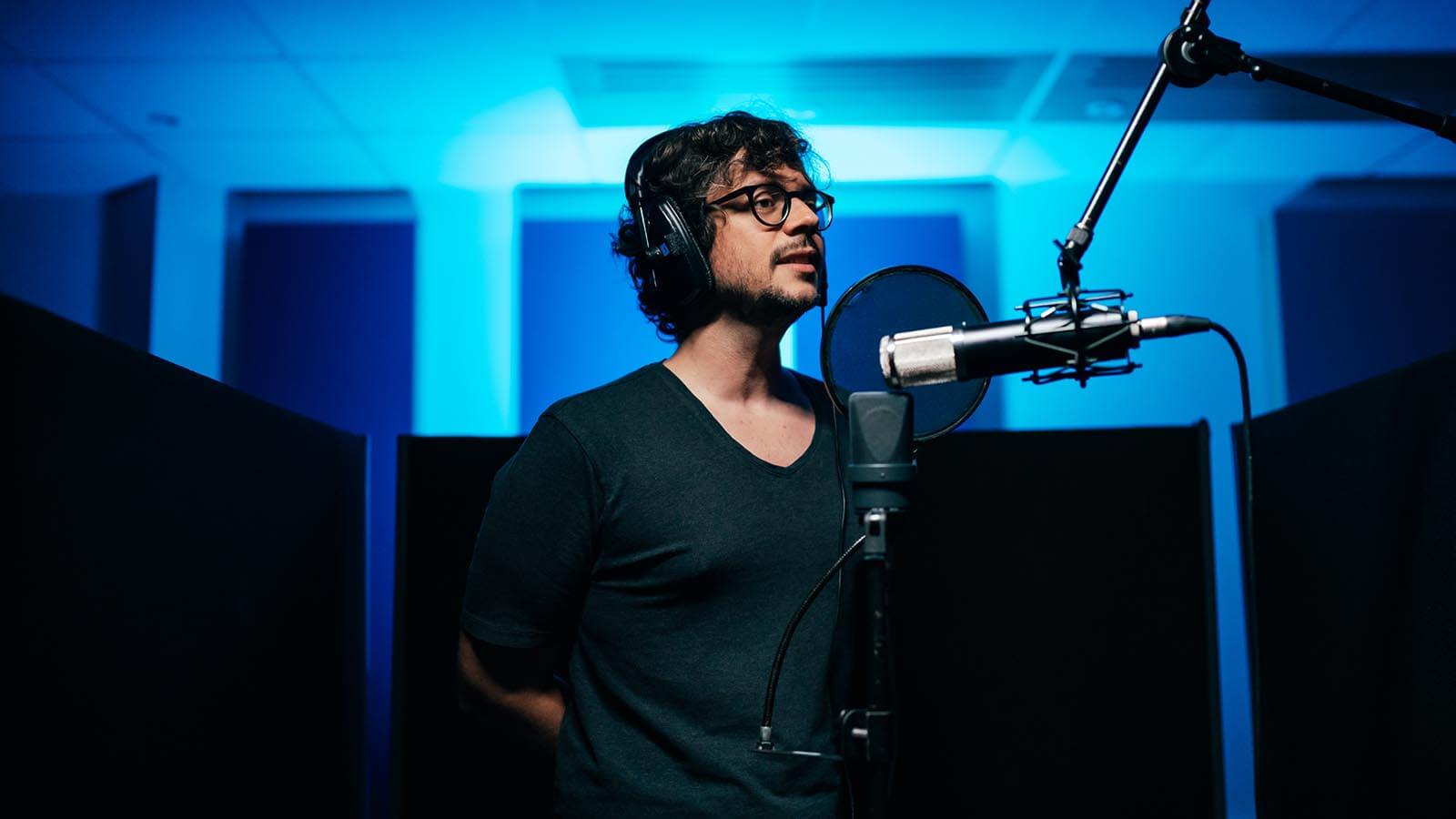
Total Course Fees: £6,750*
SAE staff and alumni discount
SAE alumni and staff receive a 25% discount on fees.
Government Master’s loans are available in England, Wales, Scotland and Northern Ireland.
Total Course Fees: £6,750*
SAE staff and alumni discount
SAE alumni and staff receive a 25% discount on fees.
For option A:
• A 500 word proposal that outlines what you want to do for your Master's Major Project and why.
For option B:
• A portfolio of work that demonstrates your creative work experience. This must include all media files (not links) and a written document summarising your involvement in the project(s) submitted.
•A CV demonstrating industry experience.
• A 500 word proposal that outlines what you want to do for your Master's Major Project and why.
For option C:
• A 500 proposal that outlines what you want to do for your Master's Major Project and why.
If English is not your first language, please refer to the International Entry Requirements below.
A candidate whose first language is not English must present evidence of having passed an English language test. The minimum acceptable level is:
- Listening – 17
- Writing – 17
- Speaking – 20
- Reading – 18
- International ESOL C1 Expert – pass in all four components
- International ESOL SELT B2 (Listening, Reading, Writing, Speaking) – minimum 33 in all components
- ESOL Integrated Skills in English II – pass in all components
*Accepted on exceptional basis for the applicants whose local test centres are affected by closures due to Covid-19
What you can expect from your masters
If you’re an early or mid-career creative media industries professional keen to boost your career or take it in a new direction, SAE’s 1-year full-time MA/MSc Professional Practice in Creative Media Industries postgraduate degree can help get you there. Whatever your creative industries sector – music business, audio production, marketing, film production, games, animation or web development – you’ll have the opportunity to critically reflect on areas of interest through creative media projects of your choosing.
Across 3 trimesters of fully remote study, you’ll conceive, plan and bring your substantial creative body of work to life with support from your own dedicated Learning Advisor. The programme will see you conduct research, expand your technical skills and knowledge across your field of expertise, take part in self-directed learning, and maximise work-based and professional practice opportunities, all online and delivered in a flexible way that fits around your busy life.
PLacing Professional development first
Developed by highly esteemed creative media industries professionals, this course mixes theoretical and practical learning, and encourages you to use your significant industry experience to help you gain a postgraduate qualification. Professional development is at the heart of this programme, with real-world industry collaboration encouraged across every module. You’ll also regularly join forces with your fellow professional practice degree students online to help bring each other’s creative projects to life.
peer feedback and networking
At the end of each trimester, you’ll take part in an online conference along with the rest of your creative industries masters student cohort – a programme which highlights student research outcomes and peer feedback, while fostering engagement and community building. Across the course, you’ll be expected to present your own professional development and research findings as you progress towards your Major Project.
At the end of your year with SAE, you’ll graduate with advanced technical and theoretical skills in your chosen creative area, an impressive network of global connections, an exceptional body of creative work you can use to stand out in the industry, and a highly coveted Master of Arts or Master of Science degree.
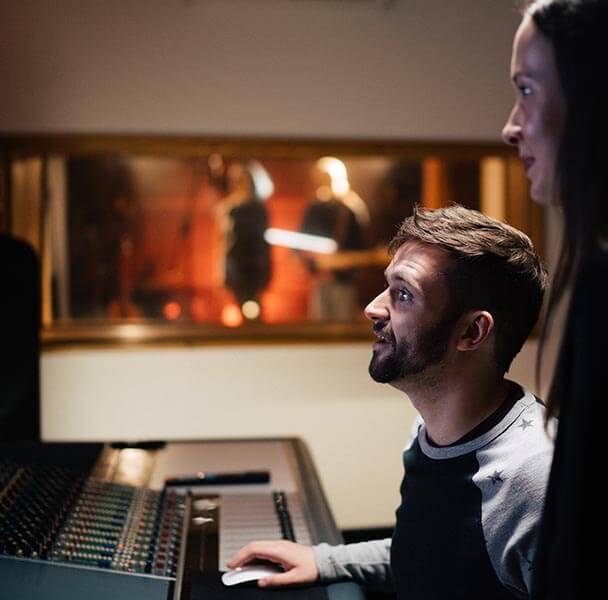
What you'll learn
- Develop your creative industries career by studying online for 1 year full time or 2 years part time.
- Connect with an exciting cohort of international students and network on a global scale.
- Choose a Master of Arts or Master of Science route, depending on the path you’d like your creative industries career to take.
- Develop a significant portfolio of work to present to industry in the form of major creative projects, typically a film, album, musical, website, game, animation or product or business launch.
- Enhance your creative industries technical skills and abilities using industry-standard tech
- Attend SAE’s student-wide online conference each trimester.
- Gain entrepreneurial skills to take into the next stage of your creative career.
- Combine hands-on immersive training with academic learning for holistic education from day one.
- Collaborate creatively with SAE students, including designers, filmmakers, game developers, animators and songwriters.
- Creative industries postgraduate course start dates available in January, May, and September.
Alumnus Spotlight: Matt Duke
“Embarking on this professional practice Master’s after 15 years in the industry was a game-changer. It’s flexibility seamlessly blended with my work schedule, providing a space to delve into my chosen specialty. Guided by experienced academics from diverse creative fields, this transformative experience became a pivotal milestone in my career journey.”
Matt is currently working at Southern Regional College as a Music Performance & Production Lecturer & Course Coordinator.
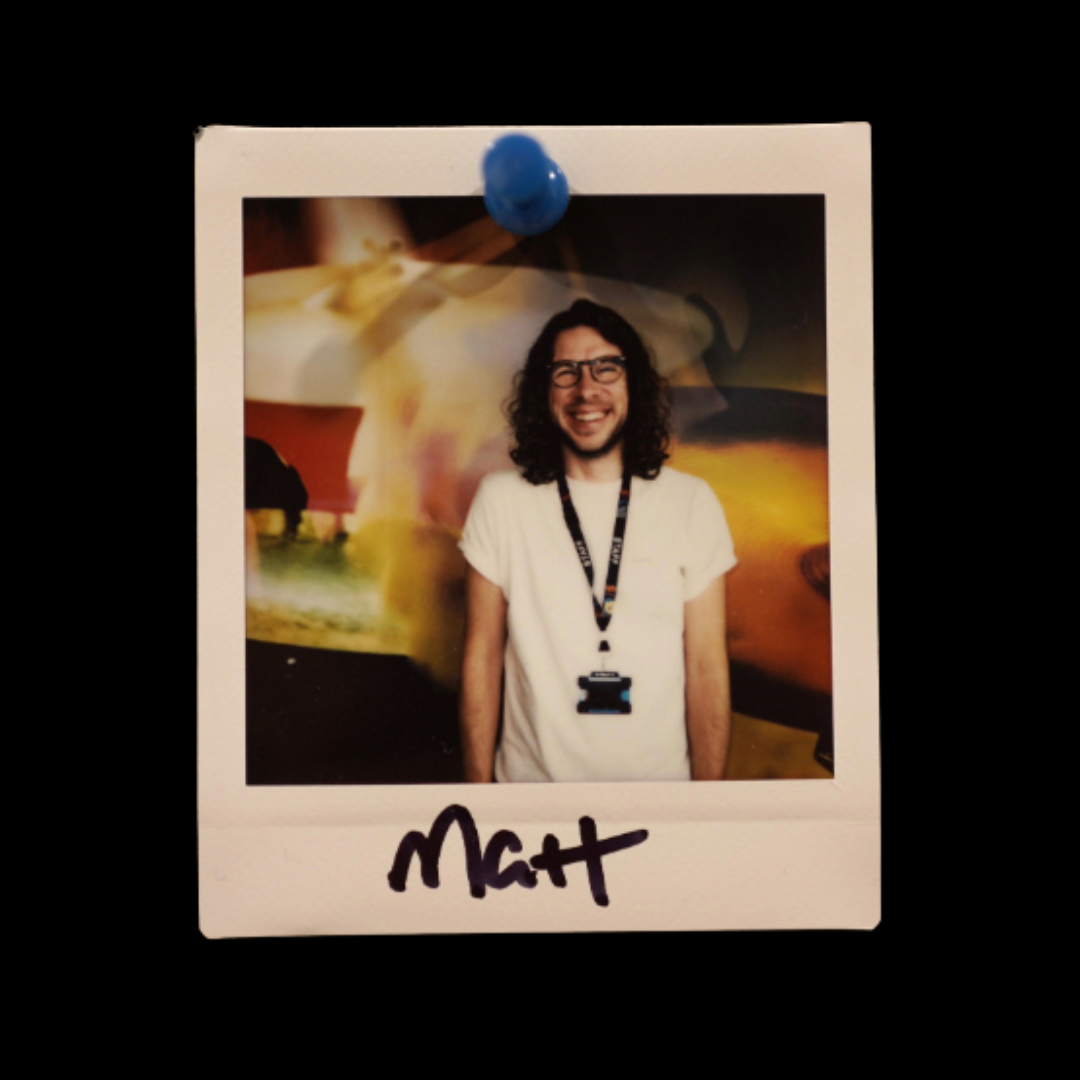
THE NEXT STEP IN YOUR CAREER BEGINS NOW
What your course structure will look like
The MA/MSc Professional Practice in Creative Media Industries course is a 1-year full time (or 2-year part time) degree, split over 3 trimesters.Starting with the development of an abstract for your project, you’ll then collaborate with your fellow students and attend an online research conference, presenting your project idea for engagement and peer feedback. Finally, you'll then refine your creative ideas, turning your finalised thoughts into your Major Project proposal.
Coursework topics include:
• Conducting postgraduate research
• Textual research methods
• Digital culture
• Narratology and postmodernism
• The historical relationship between Science and The Arts
• Innovation and risk-taking in entrepreneurship
• Approaches to creative media project design
• The management and production of creative projects
• Cultural and ethical considerations in professional practice
• Organisation of research symposia/seminars
• Relationship between professional practice and work-based learning principles
• Research presentation (written, visual and oral)
The module thereby both provides essential development of the student’s professional practice and equips the students with the self-reflective, analytical and project management skills to ensure that they become effective life-long learners.
Students will be supported to achieve module outcomes through the completion of an individual portfolio of work, which might typically include project plans, the projects themselves, and reflective report(s) addressing the work completed. An indicative syllabus for the module is negotiated and approved with faculty on an individual basis, primarily through the previous module (Project
Planning & Theoretical Perspectives), though perspectives can be refined and refocused based on feedback or further reflection. A rationale for reframing the professional activates can therefore be presented to respond to opportunities or shortcomings that have arisen. Learning resources and reading lists will be updated regularly and made accessible through the VLE.
WHY STUDY A PROFESSIONAL PRACTICE POSTGRADUATE DEGREE AT SAE?

Flexible learning
Gain a masters in creative media by studying remotely from wherever you are in the world, in a way that fits around your life.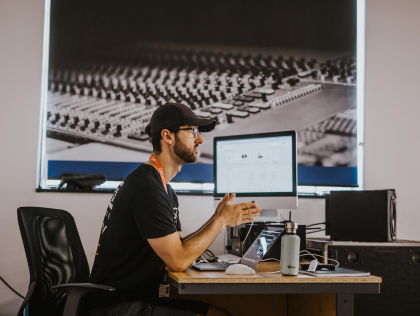
Creative project development
Spend a year developing a substantial body of creative work in a creative industries area of your choosing, while gaining a highly sought-after postgraduate qualification.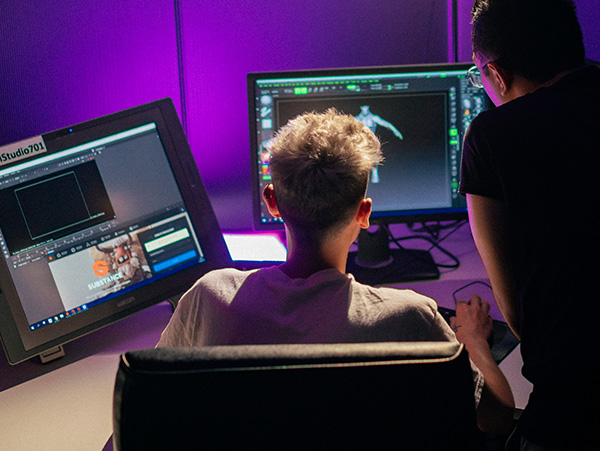
Great value masters
Study at SAE – one of the most affordable postgraduate education providers out there. And SAE undergraduates receive a 25% discount on all masters courses too.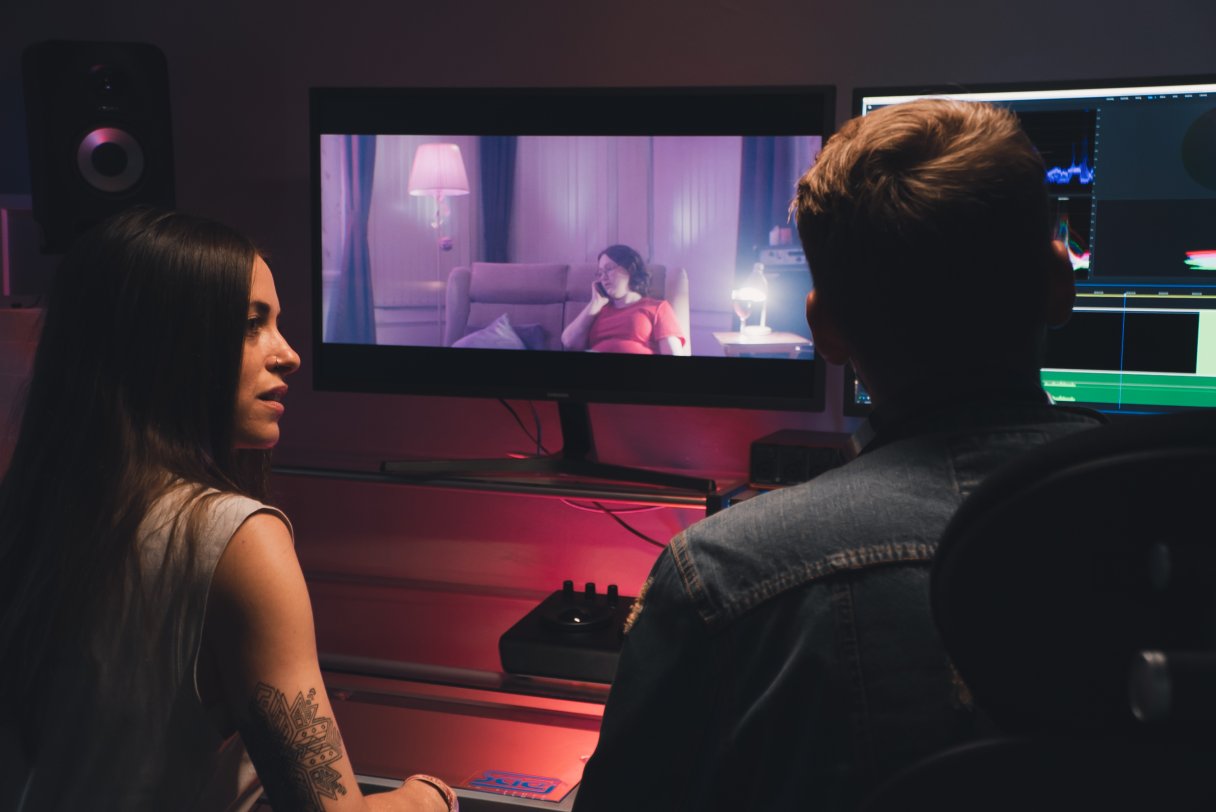
Career outcomes
What Jobs will this course lead to?
- Character Animator
- Graphic Designer
- FX Artist
- Game Designer
- Level Designer
- Game Tester
- Game Programmer
- Music Producer
- Sound Designer
- Artist Manager
- Record Label Owner
- Press and PR Agent
- Live Event Promoter
- Social Media Marketer
- Content Creator
- Screenwriter
- Cinematographer
- Director
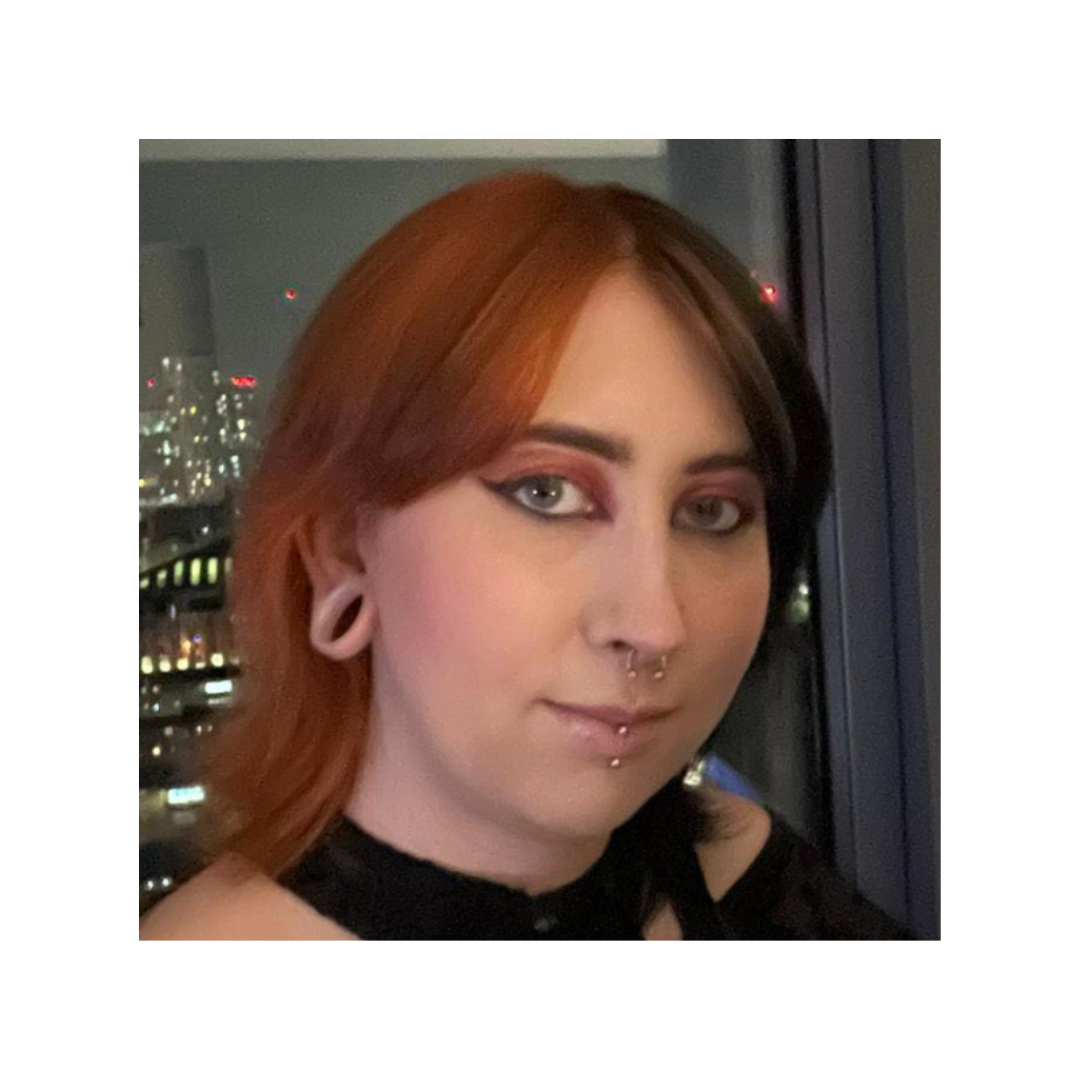
Alumnus Spotlight: Abbey Carter
“With the Masters course being online, self directed learning felt [like] I could really focus on my specialist field… although I had a lot of ideas, my tutor helped refine these and said something that I now teach to my students: “your work will only be as good as your passion”.”
Abbey is currently the Co-Founder and 3D Environment Artist at Atlantis 3D Studios, as well as working as a freelance tutor in BTEC Digital Game Arts at LMA Liverpool.

YOUR DREAM CAREER STARTS NOW
With our industry connections, specialised teachers and personalised education in world-class facilities, you can unleash your creative future with a Creative Media masters degree.SAE ALUMNI STORIES
Find out more about our former Postgraduate studentsCourse FAQs
As an online programme it assumes a great degree of self-motivation since it is self-directed. However in terms of support and contact, students are assigned a Learning Advisor who guides them through their study path (what to study, subject specific advice related to their research focus, how to study, etc.).
Students interact with their learning advisor on a regular basis; formally 6 hrs of LA support per 60 credit module or combination of modules.
Course content is produced based on students needs and topical issues (e.g. a critique of a bibliography) rather than a weekly syllabus, given that the programme is research based.
All the above documentation and course content is available via Moodle, our Virtual Learning Environment.
We also schedule a number of live webinars across all modules to cover some essential content and assessment requirements.
It is not expected that students will need access, given the programme is delivered online. However this is at the campuses’ discretion to offer additional facilities should they wish.
In addition, as most students on the course will be working in industry, they normally will have access to the resources required. Many resources are also freely available online.



